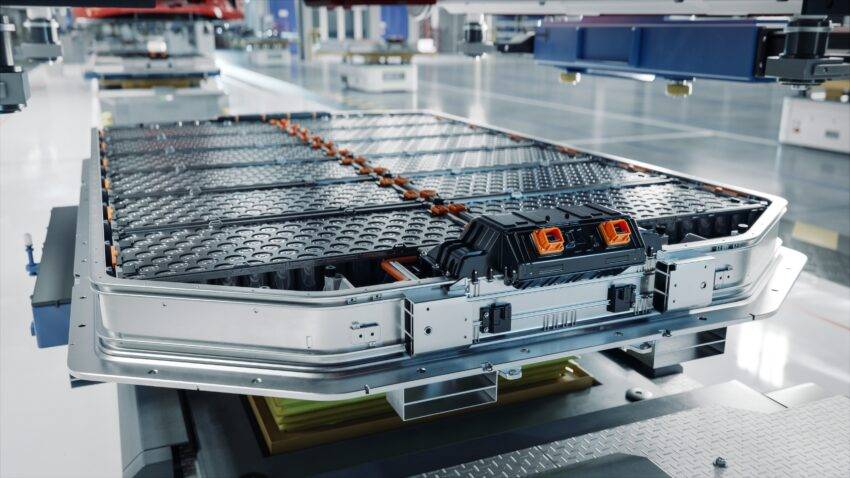A Brief Look at the Evolution of EV Battery Technology
The popularity of electric vehicles (EVs) is on the rise, particularly in the UK, where government initiatives aim to phase out petrol and diesel vehicles by 2035. Read more: A Brief Look at the Evolution of EV Battery Technology


The popularity of electric vehicles (EVs) is on the rise, particularly in the UK, where government initiatives aim to phase out petrol and diesel vehicles by 2035.
Central to this transition is the evolution of EV battery technology, which has played a crucial role in making electric vehicles increasingly practical for consumers.
Additionally, the increasing availability of public EV charging infrastructure and reputable home EV charger installation services has begun to add to the appeal of EVs for consumers. In fact, when you search online nowadays for “EV charger installation near me,” you’ll find a wealth of options.
As EV adoption continues to gain momentum, the advancement of battery technology remains pivotal for the future of electric mobility. Improvements in energy density, charging speeds, and battery lifespan, for instance, are enhancing the performance of EVs and addressing key concerns such as range anxiety and infrastructure development.
In this article, we’ll explore the journey of EV battery technology, from its humble beginnings to groundbreaking innovations and future prospects.
Early Beginnings
The history of EV batteries dates back to the early 19th century when the first electric vehicles appeared on the scene. But unlike the sleek and stylish EVs you see on the road today, these older versions of electric vehicles relied on primitive batteries that were bulky, inefficient, and unable to provide the necessary range for practical use.
It wasn’t until 1859 that one of the earliest breakthroughs came. The invention of the lead-acid battery by French physicist Gaston Planté marked an important step forward in battery technology. These lead-acid batteries were rechargeable and offered a more sustainable power source compared to their non-rechargeable predecessors.
Game-Changing Innovations
In the latter half of the 20th century, the evolution of EV battery technology gained momentum with the development of nickel-metal hydride (NiMH) batteries. Compared to lead-acid batteries, NiMH batteries offered higher energy density and reduced weight, which is a significant improvement. They became widely used in hybrid electric vehicles (HEVs) and paved the way for more advanced battery technologies.
However, it was the advent of lithium-ion (Li-ion) batteries in the 1990s that truly revolutionised the EV industry. Li-ion batteries offered EVs even greater energy density, a longer lifespan, and faster charging capabilities compared to NiMH batteries. This breakthrough also made it feasible to produce electric cars with competitive driving ranges and improved performance. It wasn’t long until Li-ion batteries were commercialised in the early 2000s. Coupled with advancements in battery management systems (BMS), this marked a turning point in the viability and popularity of electric vehicles.
Current State of EV Battery Technology
Today, EV battery technology continues to advance at a rapid pace. Electric vehicles now use modern lithium-ion batteries that boast impressive energy densities. This allows for longer driving ranges and shorter charging times. Another significant innovation that has transformed EV battery technology is in electrode materials. Particularly, the adoption of silicon anodes and solid-state electrolytes is enhancing the performance and safety of these batteries.
Future Prospects
Looking ahead, the future of EV battery technology appears promising with several emerging trends and innovations.
Cobalt-Free Batteries
Emerging technologies are focused on developing cobalt-free batteries, which would reduce dependency on this resource and potentially lower costs. Manufacturers and researchers are also exploring alternative cathode materials, like nickel-rich formulations, to achieve comparable performance without compromising on battery lifespan or safety.
Solid-State Batteries
Solid-state batteries also represent a promising advancement in EV battery technology. These batteries employ a solid electrolyte, which is far different from the liquid electrolyte that traditional lithium-ion batteries use. This design offers several potential advantages, including higher energy density, enhanced safety (which includes a reduced risk of leakage or thermal runaway), and a longer lifespan.
Additionally, solid-state batteries also have the potential to support faster charging times, addressing one of the primary concerns for EV users. While still in the research and development phase, companies and academic institutions worldwide are making significant strides towards commercialising solid-state battery technology.
Sodium-Ion Batteries
Another emerging technology in the realm of EV batteries is sodium-ion batteries. Sodium, being more abundant and cost-effective compared to lithium, presents an attractive alternative for large-scale energy storage solutions. While sodium-ion batteries currently exhibit lower energy density than lithium-ion counterparts, ongoing research aims to overcome these limitations. Advancements in electrode materials and electrolyte chemistry are also expected to improve the performance and viability of sodium-ion batteries for electric vehicles and grid applications.
Moreover, predictions suggest that the next decade will witness continued advancements in EV battery technology, making electric vehicles more accessible and appealing to consumers. As technology improves and manufacturing scales up, the cost of batteries is expected to decrease, which can further accelerate the transition to electric mobility.
The journey of EV battery technology has been marked by continuous innovation and significant milestones, with each phase contributing to the advancement of electric vehicles that users now enjoy. As the global automotive industry shifts towards electric mobility, the role of battery technology will only grow in importance. With ongoing investments in research, infrastructure, and policy support, the UK is well-positioned to play a leading role in the next chapter of the EV revolution.
Read more:
A Brief Look at the Evolution of EV Battery Technology
What's Your Reaction?


























:quality(85):upscale()/2025/02/27/808/n/1922398/26784cf967c0adcd4c0950.54527747_.jpg)
:quality(85):upscale()/2025/02/03/788/n/1922283/010b439467a1031f886f32.95387981_.jpg)
:quality(85):upscale()/2025/01/08/844/n/1922398/cde2aeac677eceef03f2d1.00424146_.jpg)
:quality(85):upscale()/2024/11/27/891/n/1922398/123acea767477facdac4d4.08554212_.jpg)



















